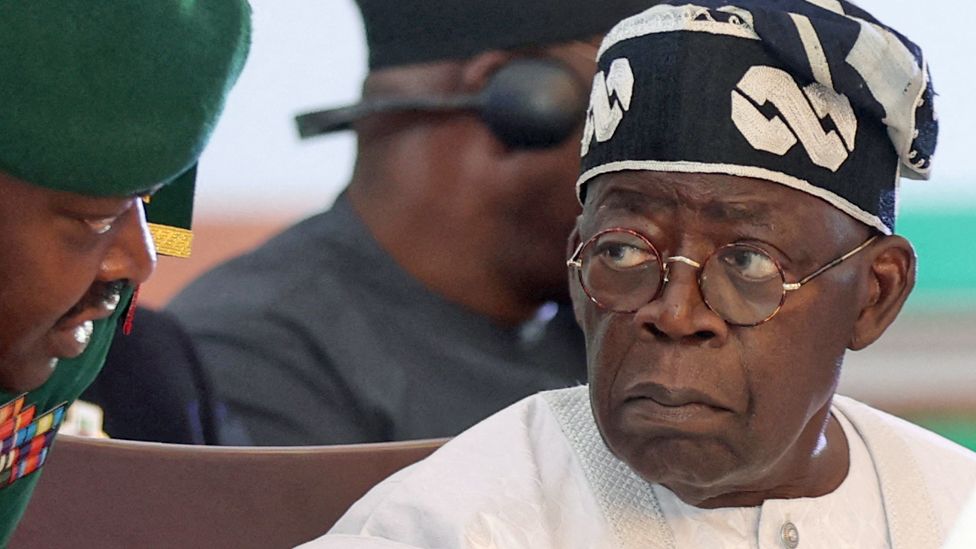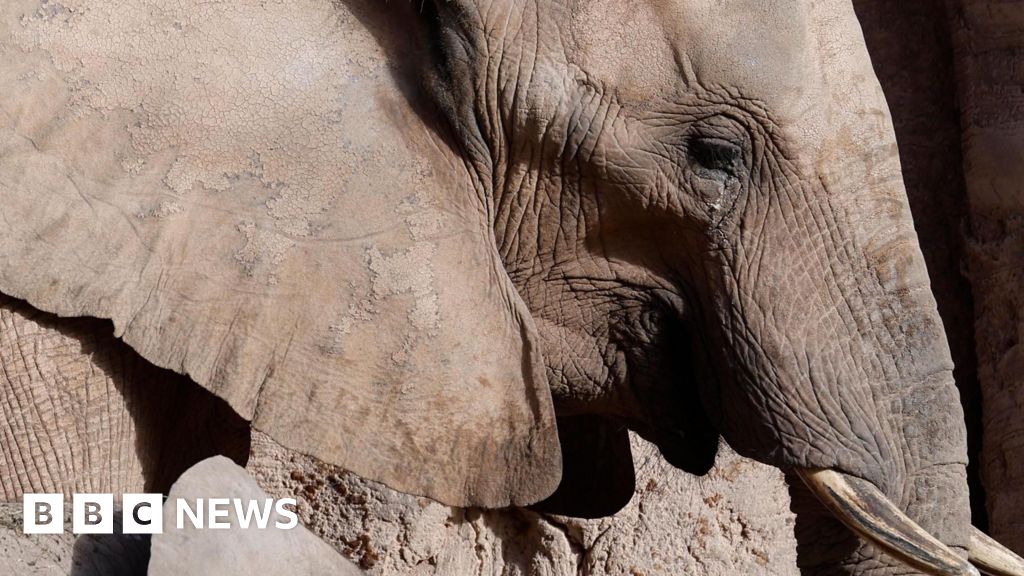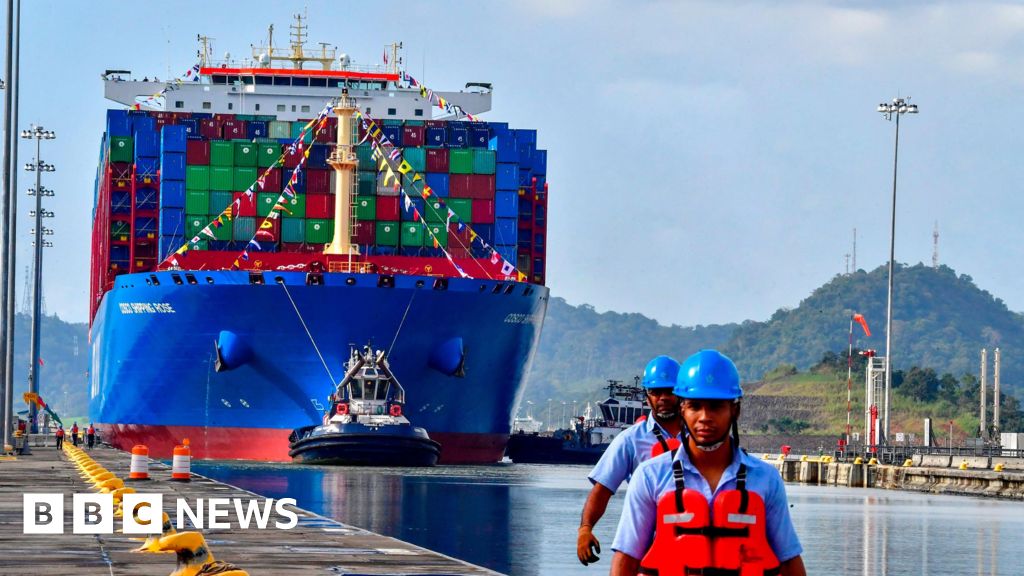ARTICLE AD BOX
 Image source, AFP
Image source, AFP
By Mansur Abubakar
BBC News, Kano
After the army seized power in Niger last year, the president of its giant neighbour Nigeria was at the forefront of demands that the junta step down, even warning that the West African bloc could use military force to oust the generals, while imposing tough sanctions and closing the border.
However just eight months later, Bola Tinubu has lifted all those restrictions.
In many ways, it is a huge climbdown for the regional bloc, Ecowas, but it is also personally embarrassing for Mr Tinubu, analysts say.
The warm welcome for the lifting of sanctions in both Niger and across the border in northern Nigeria also shows the unpopularity of his original, hard-line position.
The about-turn was partly because Niger, along with its fellow juntas in Burkina Faso and Mali, hugely increased the stakes by saying they would pull out of Ecowas altogether, raising serious questions about the bloc's future.
The three countries had been suspended from Ecowas, which has been urging them to return to democratic rule.
It seems Ecowas realised its waning influence after the trio went ahead to form an alliance, sever ties with France and forge closer relations with Russia.
Nigerian political commentator Sani Bala thinks Mr Tinubu was too hasty eight months ago in trying to prove himself, and act like the "strong man".
He had only been in office two months when Niger's coup took place and had just taken over as chairman of Ecowas.
"It was a huge mistake from President Tinubu to impose those sanctions without fully appreciating the special relationship we have with Niger," the Kano-based analyst told the BBC.
Mr Tinubu's own background - being forced into exile by a military regime in the 1990s - may have influenced his tough stance.
Yet Mr Bala feels he should not have been so quick to act: "He should have consulted widely from the start."
Mahmud Bawa, a political analyst in the city of Kaduna, agrees.
"Bola [Tinubu] is too impulsive. He will act and think later - just like in his inaugural speech," he told the BBC.
This is a reference to how the president announced that Nigeria's long-standing fuel subsidy would be ending - a seemingly off-hand remark during his inauguration ceremony at the end of May last year. It caused chaos at the time and the subsequent huge jump in the price of petrol has had huge knock-on costs for consumers.
"He is facing the consequences now," said Mr Bawa, adding that the president has just had to suspend his student loan scheme, due to start this month, as the legislation was put together too hastily. "So I think this is embarrassing."
Image source, AFP
Image caption,Communities along the long Nigeria-Niger border have been worst affected by the sanctions
The fact that the 71-year-old president had initially threatened military action against Niger was what really raised hackles.
Nigeria and Niger share strong ethnic, economic and cultural ties, with families living either side of the border.
Closing the border and cutting off the electricity, which caused blackouts in cities across Niger, also angered many.
Trade suffered - and essentials such as cement could no longer be imported. The landlocked country depends on imports brought in by road.
Hamidou Kalalabuwa, a small-time trader in Diffa, a city in south-eastern Niger on the border with Nigeria, said poor mainly Muslim communities on both sides had suffered most.
"This is amazing news and even more special coming in the Ramadan month of fasting," he told the BBC.
"In Hausa we have a saying 'bayan wuya sai dadi', which translates as 'after suffering comes relief'. This is a relief," he said.
In Nigeria, business in the northern city of Kano - an economic hub for the region - was greatly affected because of the sanctions.
The absence of businessmen from Niger, often in town to buy products to export, was keenly felt.
Kano property developer Auwalu Yakasai is over the moon about Mr Tinubu's U-turn - given that the economy is suffering on multiple fronts.
"It is good news and my hope is that the economy benefits and gets better," he told the BBC.
This joyous response from both sides may give Nigeria's president some reprieve, Mr Bala says.
"Niger has always been Nigeria's friend and this move will go a long way to repair the damaged relationship."

 10 months ago
47
10 months ago
47








 English (US) ·
English (US) ·